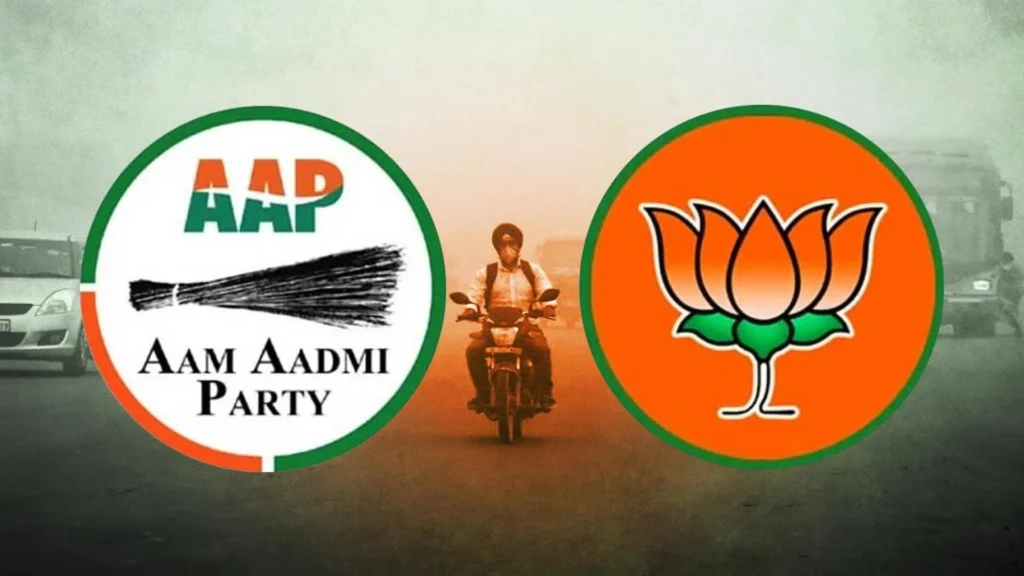
Introduction
The political rivalry between Prime Minister Narendra Modi’s Bharatiya Janata Party (BJP) and Arvind Kejriwal’s Aam Aadmi Party (AAP) has intensified in the lead-up to the 2025 Delhi Assembly elections. The inauguration of the Delhi-Meerut Regional Rapid Transit System (RRTS) corridor has sparked a fresh round of attacks and counter-attacks between the two parties. While the RRTS project promises to revolutionize transportation, it has become a battleground for political one-upmanship, with both leaders claiming credit for Delhi’s development. In this blog, we will explore the key points of this political face-off, analyze the ongoing debates, and discuss the implications for Delhi’s future.
The RRTS Inauguration: A Milestone in Delhi’s Infrastructure
On January 4, 2025, Prime Minister Narendra Modi inaugurated the 13-km Delhi-Meerut RRTS corridor, connecting Sahibabad in Ghaziabad to New Ashok Nagar in Delhi. This project is part of the broader RRTS network that aims to enhance connectivity between Delhi and its neighboring cities, including Meerut. The inauguration was seen as a significant milestone in improving Delhi’s transportation infrastructure, making it easier for commuters to travel between the national capital and surrounding areas.
While the project has been lauded for its potential to ease traffic congestion and reduce travel times, the political discourse around it has become as important as the technical details of the infrastructure.
PM Modi’s Critique of the AAP Government
At the inauguration event, Prime Minister Modi took the opportunity to criticize the Delhi government led by Arvind Kejriwal. Modi claimed that AAP’s tenure in power had been a waste for the people of Delhi, accusing them of failing to deliver on key promises. He emphasized that all significant development works in Delhi had been carried out by the central government, asserting that the AAP government lacked a clear vision for the capital’s growth.
“‘AAP-da’ wasted 10 years of the people of Delhi,” Modi said, referring to the AAP government’s alleged failures. He further accused the AAP leadership of being more focused on internal squabbles and political theater than on the well-being of the people of Delhi.
The Prime Minister’s comments were pointed, and his remarks were not just about Delhi’s development but also about AAP’s governance style. According to Modi, while the central government was tirelessly working on infrastructure projects like RRTS, AAP had not contributed significantly to such initiatives.
Kejriwal’s Response: Focus on People’s Welfare
In response to the Prime Minister’s remarks, Arvind Kejriwal held a press conference where he sharply criticized Modi for using the inauguration as a platform for political attacks. Kejriwal claimed that out of the 38 minutes Modi spoke during his address, 29 minutes were spent criticizing the Delhi government.
Kejriwal pointed out that despite the alleged “atrocities” faced by the AAP leadership, including the incarceration of key leaders like Manish Sisodia and Sanjay Singh in the Delhi excise policy case, the party had always focused on the welfare of Delhi’s citizens. He claimed that if the AAP had made those alleged injustices an issue, projects like the RRTS corridor may not have been inaugurated.
Kejriwal reiterated that the AAP’s priority has always been to serve the people of Delhi, and the party has cooperated with the central government on essential projects like RRTS, even under challenging circumstances.
Political Allegations and the Road to Elections
The ongoing political war between the BJP and AAP is not just about infrastructure but also about the narrative leading up to the 2025 Delhi Assembly elections. As PM Modi and Kejriwal exchange barbs, the central issue remains the same: who can better govern Delhi and deliver on promises made to the electorate?
Kejriwal has accused Modi and the BJP of running a campaign focused primarily on criticizing AAP rather than outlining concrete plans for Delhi’s future. According to Kejriwal, the BJP’s strategy is to target AAP’s leadership and governance, while the BJP itself is avoiding meaningful debates on the issues that matter to the people of Delhi.
For the AAP, the focus on infrastructure, education, and healthcare has been central to its political narrative. Kejriwal’s government has frequently touted its achievements in the field of education, healthcare, and public services as proof of its commitment to the people.
The Future of Delhi: Cooperation or Confrontation?
With both the central government and the Delhi government locked in a continuous battle for political supremacy, the question remains: will this rivalry hinder progress, or will it push both sides to deliver more for the people of Delhi? The RRTS project is a crucial step forward for Delhi’s infrastructure, but it also serves as a reminder of the deep-rooted political tensions that can shape the future of urban development.
As the 2025 Delhi Assembly elections approach, Delhi’s voters will have to decide whether they want to continue with the status quo or opt for a change in leadership. Will they reward the AAP for its focus on education, healthcare, and public welfare, or will they give Modi and the BJP a chance to lead Delhi into the next decade of development?


